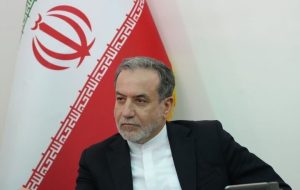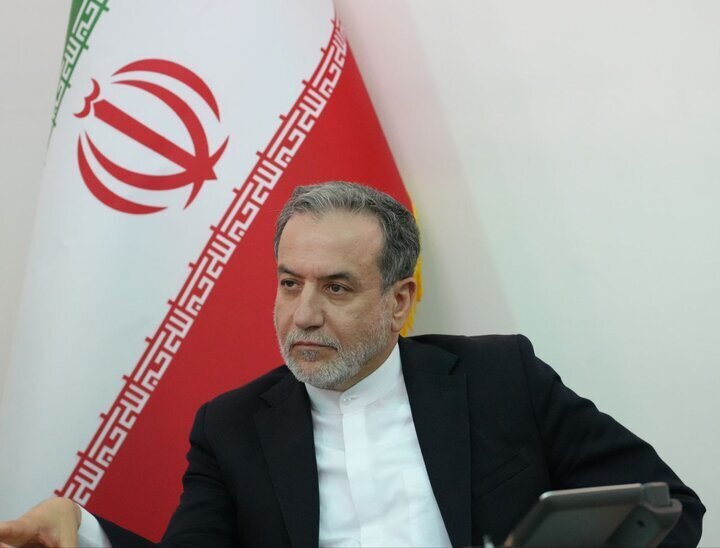Araghchi engages with regional counterparts to address escalating tensions
TEHRAN – Iran’s Foreign Minister, Abbas Araghchi, has been actively consulting with regional leaders to address pressing bilateral and regional issues, focusing heavily on the ongoing violence in Gaza and Lebanon. Over recent days, Araghchi has held separate phone conversations with his counterparts from Qatar, Egypt, Indonesia, and Algeria, emphasizing the need for urgent diplomatic


TEHRAN – Iran’s Foreign Minister, Abbas Araghchi, has been actively consulting with regional leaders to address pressing bilateral and regional issues, focusing heavily on the ongoing violence in Gaza and Lebanon.
Over recent days, Araghchi has held separate phone conversations with his counterparts from Qatar, Egypt, Indonesia, and Algeria, emphasizing the need for urgent diplomatic action to restore stability and protect civilians.
In a Wednesday night call with Sheikh Mohammad bin Abdulrahman Al Thani, the Foreign Minister and Prime Minister of Qatar, Araghchi discussed the latest developments in the region, particularly the intensifying conflict in Gaza and Lebanon.
The Qatari Prime Minister provided updates on diplomatic efforts being undertaken to secure a ceasefire and bring relief to affected civilians. Araghchi underscored the critical importance of unified efforts among Islamic nations to support the people of Palestine and Lebanon and called for an immediate end to what he described as Israel’s aggressive actions and genocide in Gaza. Both ministers agreed that regional peace hinges on halting Israel’s military operations.
In a separate discussion that same evening, Araghchi spoke with Egyptian Deputy Foreign Minister Badr Abdul Ati.
Both diplomats expressed optimism over the recent progress in Tehran-Cairo relations and the positive outcomes of dialogue between the two nations, following a constructive meeting between Iranian and Egyptian leaders on the sidelines of the recent BRICS summit in Kazan, Russia.
Araghchi and Abdul Ati highlighted the precarious situation in Lebanon and Gaza, calling for urgent international action to establish a ceasefire. They also emphasized the special role of Islamic countries in fostering regional stability.
Iran’s engagement extended further, as Araghchi reached out to Indonesia’s new Foreign Minister, Sugiono, to discuss expanding relations between Tehran and Jakarta.
Araghchi congratulated Sugiono on his appointment and praised Indonesia’s firm condemnation of Israeli aggression. The two ministers discussed the deteriorating situation in Gaza, as well as Israeli attacks on Lebanon. Both agreed that the international community, alongside Islamic nations, must act swiftly to halt the violence and protect civilians in these conflict zones.
On Thursday, Araghchi continued his diplomatic outreach by speaking with Algeria’s Foreign Minister Ahmed Attaf. The two diplomats reviewed the current crisis in Gaza and Lebanon, expressing deep concern over what they described as a genocide in Gaza and persistent aggression against Lebanon.
Araghchi and Attaf emphasized the importance of coordinated international efforts to address the humanitarian crisis, especially through the Organization of Islamic Cooperation (OIC). They looked ahead to the upcoming Arab-Islamic summit, which they saw as a crucial platform for unifying regional efforts.
Araghchi also expressed gratitude to Algeria for its consistent support for the people of Palestine and Lebanon and for condemning Israel’s recent actions against Iran.
He voiced appreciation for Algeria’s backing of Iran’s call for a United Nations Security Council meeting on these issues. Attaf affirmed Algeria’s commitment to strengthening its ties with Iran and stated that both nations share a common view on the Palestinian cause.
In a related development on Thursday, the Iranian and British ambassadors to Iraq sat down for a meeting in the capital Baghdad to discuss the escalating tensions in West Asia, spurred by over a year of unchecked Israeli violence.
Iran’s ambassador to Baghdad, Mohammad Kazem Al-Sadeq, and his British counterpart, Stephen Charles Hitchen met to explore potential avenues for cooperation and dialogue between their respective countries to promote peace and stability in the region.
During the meeting, Al-Sadeq highlighted the ongoing violence and aggression perpetrated by the Israeli regime in the region, cautioning that a broader conflict could ensue if Western nations do not rein in Israeli Prime Minister Benjamin Netanyahu.
Al-Sadeq also condemned the actions of Western countries in supplying arms to Israel, arguing that their support for the regime contradicts their professed commitment to human rights, peace, and stability in West Asia.
The Iranian ambassador reiterated his country’s desire for peace and stability in the region while asserting that Iran would defend itself against any acts of aggression, referencing the recent Israeli airstrikes on Iranian military installations on October 26.
The British Ambassador to Iraq reaffirmed the United Kingdom’s dedication to “fostering peace and stability” in West Asia.
Hitchen also highlighted the significance of transparent dialogue and collaboration among regional powers to tackle the diverse challenges confronting the area.
